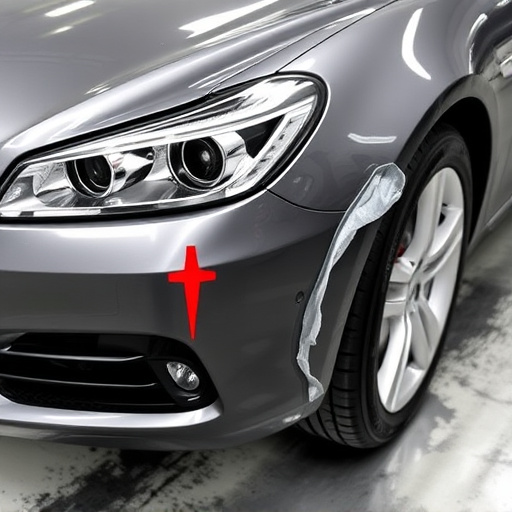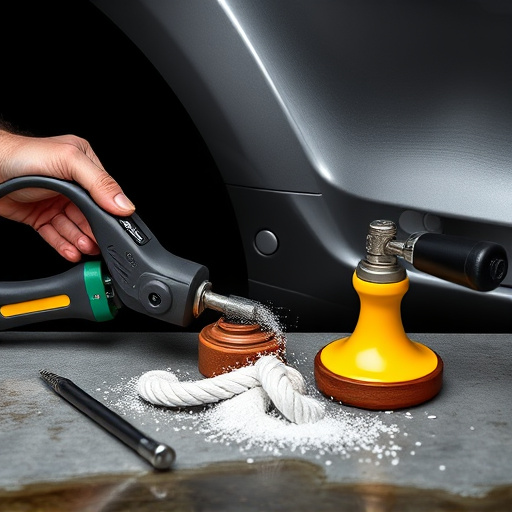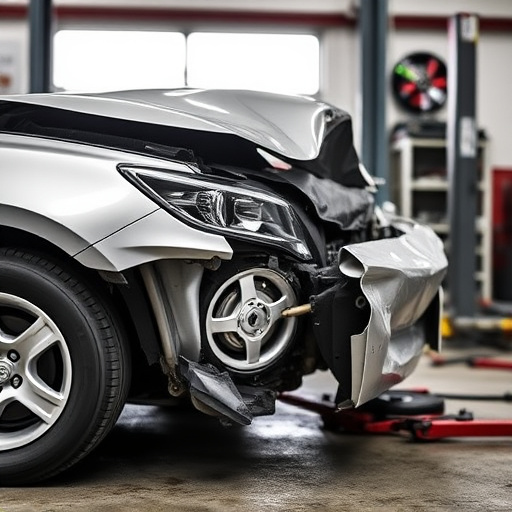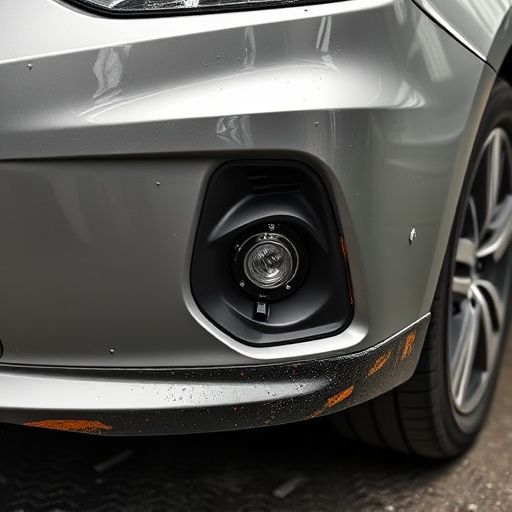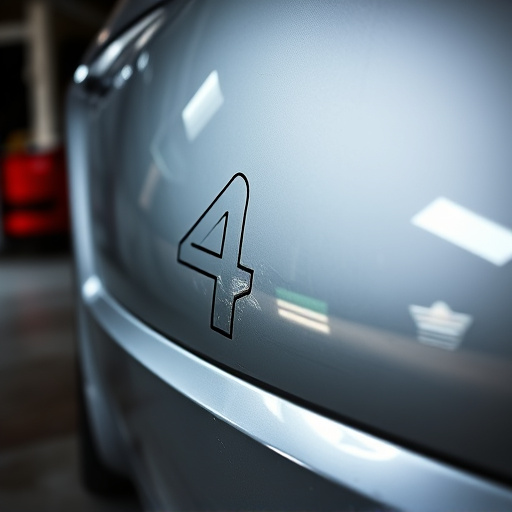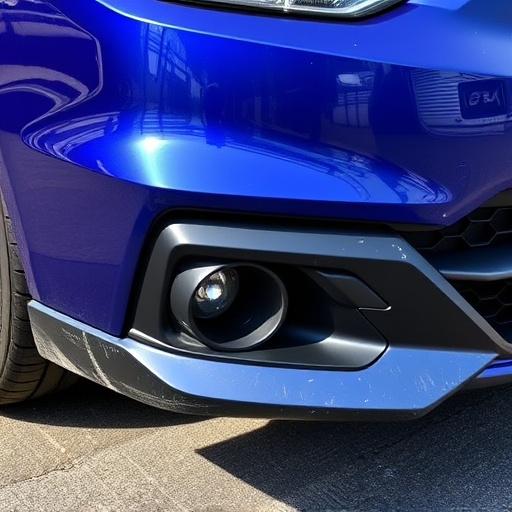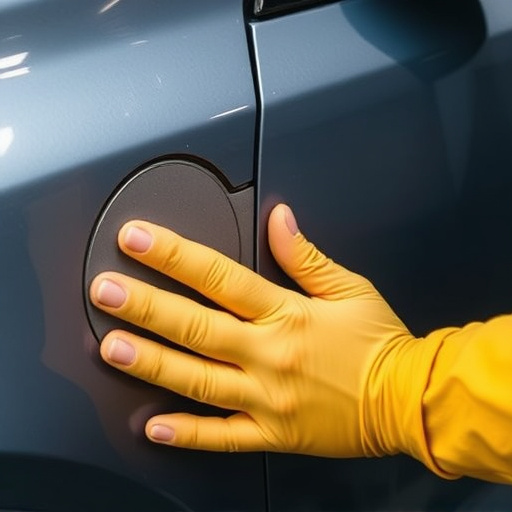Mercedes Active Brake Calibration (ABC) is a safety technology that uses real-time sensor data and algorithms to adjust braking based on road conditions, vehicle dynamics, and obstacles. It reduces accident risk, improves collision repair outcomes, and maintains braking component reliability. ABC is a critical component of Mercedes' focus on precise emergency stop accuracy, minimizing braking distances, and enhancing overall vehicle safety. Proper calibration ensures consistent braking power across varying conditions, boosting driver confidence and contributing to the safety and performance of vehicles used in various automotive services.
Mercedes-Benz has pioneered a revolutionary safety feature, the Active Brake Calibration system, designed to enhance emergency braking precision. This cutting-edge technology ensures optimal vehicle stopping power in critical situations. The article delves into the intricacies of how Mercedes calibrates its active brakes, focusing on maintaining precise emergency stop accuracy. By exploring calibration techniques, we uncover the secrets behind Mercedes’ commitment to safety, offering a deeper understanding of their Active Brake Calibration system.
- Mercedes Active Brake Calibration: Enhancing Safety Precision
- Emergency Stop Accuracy: A Key Focus for Mercedes
- Optimizing Vehicle Braking: The Role of Calibration Techniques
Mercedes Active Brake Calibration: Enhancing Safety Precision

Mercedes Active Brake Calibration is a cutting-edge technology that significantly enhances the safety and precision of emergency stops. By continuously adjusting and refining braking systems, this innovative feature ensures optimal performance under various driving conditions. It achieves this through sophisticated sensors and advanced algorithms that monitor road conditions, vehicle dynamics, and surrounding obstacles in real time.
This calibration process plays a vital role in improving automotive collision repair outcomes by reducing the likelihood of accidents. In the event of an emergency, the calibrated system swiftly and accurately applies brakes, minimizing the distance required to stop, thereby safeguarding both the vehicle and its occupants. Moreover, regular calibration also contributes to efficient car repair services, as it helps maintain the overall health and reliability of a vehicle’s braking components, making them less prone to failures that could lead to accidents.
Emergency Stop Accuracy: A Key Focus for Mercedes

In the competitive automotive industry, Mercedes has always placed a strong emphasis on safety features. One critical aspect of this commitment is achieving precise emergency stop accuracy in their vehicles. With advancements in active brake technology, such as the Mercedes Active Brake Calibration system, the brand strives to ensure that its cars can safely and efficiently bring drivers to a halt under various conditions. This focus on emergency stop accuracy is not merely about meeting regulatory standards but goes above and beyond to protect passengers and other road users.
Mercedes’ dedication to this aspect of vehicle safety translates into rigorous testing and calibration processes for their active brake systems. By fine-tuning the Mercedes Active Brake Calibration, engineers aim to minimize braking distances, especially in critical situations like sudden obstacles or emergency maneuvers. This meticulous approach guarantees that when drivers need to react swiftly, their Mercedes vehicles can provide the necessary stopping power while maintaining control and minimizing the risk of auto collision center visits due to uncontrolled stops. Moreover, ensuring accurate emergency braking complements other safety features, enhancing overall car body repair needs prevention during collisions.
Optimizing Vehicle Braking: The Role of Calibration Techniques

Optimizing vehicle braking systems is paramount for ensuring safety on the road. This is where Mercedes Active Brake Calibration plays a pivotal role. Advanced calibration techniques allow for precise control over the braking process, enabling the car to react swiftly and accurately during emergency stops. By fine-tuning the system, manufacturers can achieve optimal performance, enhancing driver confidence and peace of mind.
These techniques involve adjusting various parameters such as brake pedal sensitivity, hydraulic pressure, and electronic signal timing. Proper calibration ensures consistent braking power across different driving conditions, terrain variations, and even tire wear. This is especially crucial for maintaining control during unexpected situations, where split-second reactions can make a significant difference in the outcome of an emergency stop—a service that car body repair shops, tire services, and fender repair centers appreciate as it contributes to overall vehicle safety and performance.
Mercedes Active Brake Calibration (MABC) significantly enhances emergency stop accuracy, proving its value as a key safety feature. By optimizing vehicle braking through precise calibration techniques, MABC ensures drivers can rely on their brakes in critical situations. This technology is a testament to Mercedes’ commitment to fostering safer driving experiences, offering both peace of mind and advanced performance on the road.

